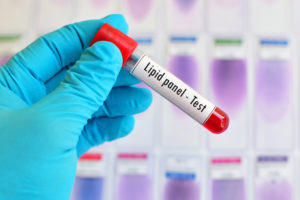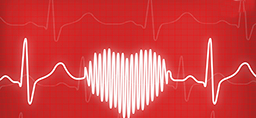
You know your blood pressure, body mass index, and cholesterol, triglyceride and blood sugar levels—or at least whether they’re within healthy ranges.
But should you also know whether your lipoprotein(a) levels are high?
It’s a question that has received some high-profile attention in the past year when the story of Bob Harper—the celebrity fitness trainer from the TV show “The Biggest Loser”—made headlines. Harper suffered a massive heart attack and went into cardiac arrest at age 51, all while being the picture of perfect health on the outside.
Harper later appeared on the Dr. Oz show to reveal his blockage was likely caused by a genetic condition of high levels of lipoprotein(a), also called lp(a). It’s a sticky cholesterol particle in the blood that, when present in high levels, can lead to a gradual narrowing of arteries and increase the risk of heart attack, stroke and blood clots.
It can be measured with a simple blood test—just like LDL and HDL cholesterol are measured.
But unlike those, doctors don’t routinely screen for lp(a).
According to Thomas Boyden, MD, a preventive cardiologist with Spectrum Health Medical Group, that’s because most people don’t have elevated levels of lp(a) and for those who do, there’s no easy treatment.
“If we’re routinely checking for things, we typically want to maximize the potential that if you find something, you can do something about it,” Dr. Boyden said. “It’s not financially feasible to test everyone for everything.”
If someone has suffered a heart attack or stroke, particularly if they’re young and healthy with no other risk factors, then doctors typically do check lp(a), as they look for an explanation of what happened, Dr. Boyden said.
Others who should be tested for lp(a) include those with early onset heart disease, or a family history of it; individuals whose parents or siblings have known elevated levels of lp(a); and individuals whose parents or siblings suffered a heart attack or stroke with no other apparent risk factors.
While statins and other medications can treat high levels of LDL cholesterol, the same is not true for lp(a), Boyden said. Niacin has been shown to reduce lp(a) levels, but patients have to take the vitamin in such high dosages that most people cannot tolerate the side effects, including hot flashes, dizziness and nausea.
A new class of drugs called PCSK 9 inhibitors is a potential treatment, but it is prohibitively expensive and has not been approved for use on patients with elevated lp(a), Dr. Boyden said.
So what’s the answer? Whether you know you have high lp(a) or whether you don’t, it’s the same. Focus on your risk factors.
“Heart disease and vascular disease are never caused by one thing,” Dr. Boyden said. “It’s a combination of everything. The most important thing is what you do at home.”
His recommendations: quit smoking, maintain a healthy weight, make sure your cholesterol levels are under control (with medication if needed), eat a plant-based or Mediterranean diet, and exercise regularly.
It doesn’t take much—a 30-minute vigorous walk every day makes a big difference.
“Heart disease is the No. 1 killer in our country and also the most preventable,” Dr. Boyden said.
 /a>
/a>
 /a>
/a>
 /a>
/a>